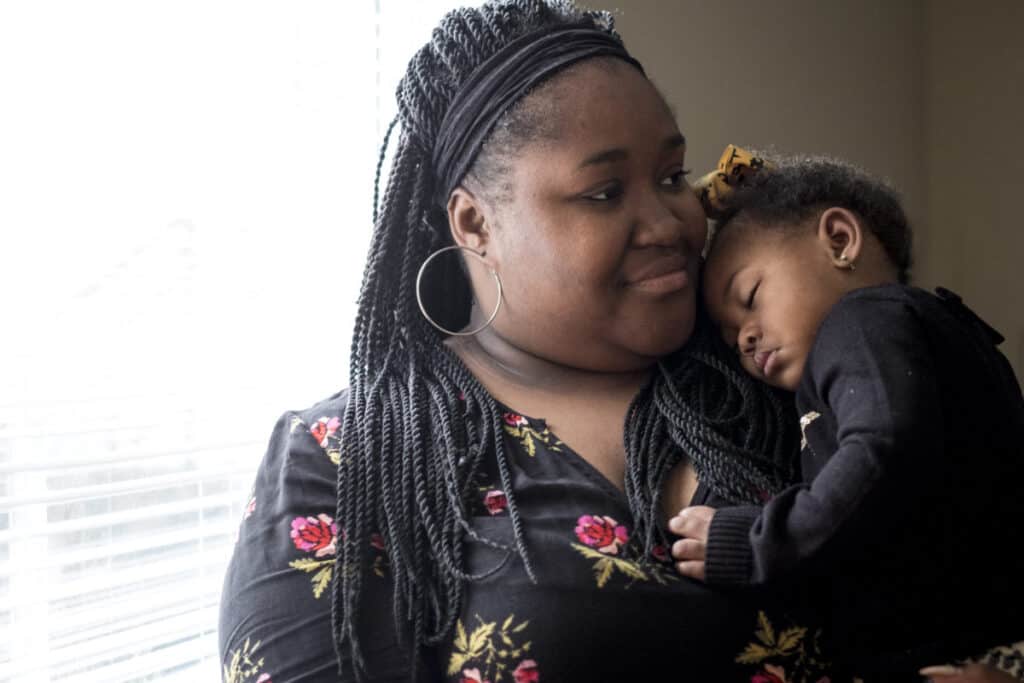If your child has a disability or developmental delay, there are many different kinds of services to support your child and your family. But it can be overwhelming to work your way through all of the information. We’ve broken it down for you here.
[Related: My child has a new disability diagnosis. Now what?]
What kinds of services support children with disabilities? And how do I find them?
1. The health care system identifies and addresses disabilities
Your child’s doctor will track their development at every regular check-up. That’s why they weigh and measure your child and ask you questions about developmental milestones every time you go.
Your doctor can also help you with:
- Tests, screenings and assessments
- Treatment for medical and emotional problems
- Referrals to other resources
You should see your child’s doctor (either a pediatrician or Primary Care Provider) at least every year. Babies should see their doctor every few months to make sure they are healthy and on track with their development.
[Related: My child is behind on her milestones. Is she a late bloomer or is it a developmental delay?]
What if my child doesn’t have a regular doctor?
Ask friends, neighbors, or your child’s teacher who they recommend. Call them to see if they are taking new patients and to make sure they accept your health insurance.
If you don’t like the first doctor you see, or you feel like they don’t understand your child and your family, try a different doctor. The doctor should be someone you get to know and trust.
What if we don’t have health insurance?
- Get information about different health insurance plans and learn how to apply.
- If your child does have a developmental delay or disability, they may qualify for Medicaid, a state-run insurance program that has good benefits for people with disabilities. This is true even for families that may make too much money to qualify for Medicaid otherwise.
- If you are living in the United States undocumented (without papers), you can still safely get care at a Federally Qualified Health Center. You can put your address into this tool to find one near you.
2. The education system identifies and addresses learning disabilities and other challenges
The education system provides services and support for kids with disabilities ages 3-21. This is usually called Special Education, although in some places it may have a different name, like Exceptional Student Services. If your child is under age 3, Early Intervention is your starting point.
Because of IDEA (the Individuals with Disabilities Education Act), children with disabilities may qualify to get school services at age 3. They may also get a spot in a public preschool, even in areas without universal preschool.
[How do I help my child transition into school services when they turn 3?]
Schools provide specialized education to students who have an IEP, or Individualized Education Plan. This means they are required to tailor their teaching to the student’s learning needs.
[New to special education? Here’s what you need to know.]
School systems also provide different kinds of therapy, like speech therapy or occupational therapy (OT), to help children with their development.
Finally, if you are concerned about your child’s progress, you can ask the school to do an evaluation to see if your child qualifies for special education or accommodations.
Every child has a right to a free, public education that meets their unique needs. It’s the law.
3. Government benefits provide financial resources and services for children with disabilities
Both the federal and state governments offer services to help children with disabilities or delays and their families.
These services include:
- Early Intervention (called EarlySteps in Louisiana). Early Intervention provides services for kids ages 0-3 who have developmental delays. This is the first thing you should look into if you feel that your child may be behind in their development. Find your state’s Early Intervention program.
- Medicaid health insurance program. Some states have their own name for Medicaid, like Healthy Louisiana or MassHealth. A child or adult with a disability may qualify for Medicaid even if your family makes too much money to qualify based on your income. Even if you have private insurance, you may also be able to get Medicaid as a secondary insurance for a family member with a disability. Learn more about your own state’s program.
- Your state’s disability support office. Each state has an office or department that provides services for people with disabilities. For example, in Louisiana it’s the Office for Citizens with Developmental Disabilities (OCDD); in Massachusetts it’s the Department of Developmental Services (DDS). Call your state’s Parent Information and Training Center (PTIC) to learn about your state’s disability department.
- SSI: Supplemental Security Income. SSI is a program that provides monthly cash benefits to seniors and people with disabilities who have little or no income.
Learn more about Louisiana services
The Office for Citizens with Developmental Disabilities (OCDD) offers these services for children and their families:
EarlySteps – Support for children from 0-3. (Also called Early Intervention.)
Medicaid Waivers – Also called Home and Community-Based Services. Medicaid Waivers allow people with disabilities to use Medicaid to access long-term care in their own homes or communities instead of in hospitals or residential nursing homes.
Flexible Family Funds – Monthly stipends (payments) for families with children who have severe developmental delays. Ask about this to see if your family qualifies.
Individual and Family Support – If you are not getting any other services, you may be able to get some through this program. It can include things like:
- Respite care: having a qualified professional care for your child for a period of time to give you a break
- Hiring a Personal Care Attendant (PCA) for a few hours per week to help you care for your child’s daily needs like bathing, dressing, eating, etc.
- Equipment, supplies or specialized nutrition that your child needs because of their condition
- Family education
Read about how OCDD services work.
Find your closest OCDD office.
Learn more about Massachusetts services
The Department of Developmental Services is the Massachusetts office that supports children and adults with disabilities.
Learn more about services for children with disabilities in every state:
The application process for getting SSI



